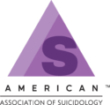What Is Suicidology?
Posted on
Suicidology is the study of suicide, as well as suicidal and life-threatening behavior. However, there’s more that goes into the field than people might think. Suicidology also includes the study of non-suicidal self-injury and self-destructive behavior, the epidemiology of suicide (that is, who engages in suicidal behavior and why), determining risk and protective factors for suicide, the process of developing screening tools and identifying effective treatments, and research around effective suicide prevention and intervention for suicidal persons.
Due to its multidisciplinary nature, suicidology occupies a somewhat ambiguous position. Suicide research is a highly intersectional topic, and can be studied through the lens of sociology, psychology, and the biomedical model, among others. Sociologically speaking, researchers might be interested in the external social factors that influence suicidal behavior. These could include culture, education, socioeconomic status, religion, relationships, and family structure, to name just a few.
From a psychological viewpoint, those in mental health professions might seek to understand the relationship between suicide and psychological factors such as mental illness, trauma, social connectedness, and more. Researchers and clinicians in the mental health field might also be interested in the type of coping mechanisms and psychological therapies that can be utilized to treat and/or prevent suicidal behavior.
Finally, from a biomedical standpoint, doctors and psychiatrists might look for the connection between suicide and certain biological risk factors, such as chronic illness, mental illness as a function of neurotransmitter imbalances, genetic predisposition, family history, and more. Professionals in medical and psychiatric fields might also be more inclined to research or prescribe pharmacological treatments for individuals exhibiting suicidal behavior.
The History of Suicidology
Although suicide has been recognized for thousands of years, the field of suicidology is comparatively new. Many credit Émile Durkheim for pioneering the field of suicidology when he published Suicide: A Study in Sociology (1897). In this seminal text, Durkheim discussed suicide as a function of two social forces: social integration and moral regulation. In doing so, he became the first person to present an empirical, methodological study of suicide.

However, it would take another half a century before suicidology was codified into a more robust discipline by Dr. Edwin Shneidman. Shneidman was a psychologist who began studying suicide in the wake of World War II. Over the course of his prolific career, Dr. Shneidman founded the Los Angeles Suicide Prevention Center (the first suicide prevention center in the country), served as the chief of the National Institutes of Mental Health (NIMH) suicide prevention program, and founded the American Association of Suicidology. He was also a professor of thanatology (the study of death) at the University of California Los Angeles. Shneidman’s contributions to the field include studies about suicide as well as prevention and intervention protocols.
Although suicidology has grown significantly in the decades since its identity remains somewhat open-ended. Unlike many other established areas of study, suicidology does not yet have a clearly defined set of knowledge or core competencies. Furthermore, professionals are not required to complete any particular degrees or educational criteria to call themselves suicidologists.
Rather, experts in the field have suggested that at least for the time being, suicidology might be thought of as an area of specialization or interest for people across a range of professions. Authors of the article “Defining Suicidology and the Title of Suicidologist?” explained that, “In this sense, a suicidologist is one who transmits, shares, or uses their understanding of suicidal phenomena for the common good, irrespective of whether or not one holds an advanced degree, certification, and/or license as a professional.”
Why Is Suicidology Important?
Suicide is a major public health problem in the United States. According to the Centers for Disease Control (CDC), suicide rates increased by 30% from 2000-2018, and have ranked among the top ten causes of death in recent years. After a brief two-year decline, rates rose again by 4% in 2021, possibly as a result of the COVID-19 pandemic. Among younger populations, the increase was even steeper.
As with any public health issue or social phenomenon, understanding is key to prevention and treatment. In the case of suicide, being able to support those who may be at risk of suicide, increase suicide awareness, and utilize effective intervention, prevention, and treatment measures is essential to building lives worth living around the world each year.
The American Association of Suicidology (AAS) is dedicated to promoting the understanding and prevention of suicide, as well as providing support, hope, and healing to those who have been affected by it. AAS promotes the study of suicide as a research discipline, public awareness programs, public education, and training for professionals and volunteers. AAS membership includes mental health and public health professionals, researchers, suicide prevention and crisis intervention centers, school districts, crisis center volunteers, survivors of suicide loss, attempt survivors, and a variety of lay persons who have an interest in suicide prevention.
By joining the AAS, the largest and oldest suicide prevention membership organization in the U.S., you will be among the ranks of the world’s leading suicidologists and suicide prevention experts. Ready to join? Individual and Organizational Memberships are available!
Related Blogs
American Association of Suicidology Announces Winners of the...
WASHINGTON, D.C. – December 22, 2025 – The American Association of Suicidology (AAS) is proud to announce the winners of the 2025 Paul G. Quinnett Lived Experience Writing Competition. This annual...
To the AAS Community
Washington, D.C., October 23, 2025- To the AAS Community: As many of you already know, Jody Gottlieb passed away unexpectedly on October 1, 2025. In the immediate aftermath of this sad and shocking news, we focuse...
Honoring the Life and Legacy of Jody Gottlieb
Washington, D.C., October 3, 2025- It is with profound sadness that we share the unexpected passing of Jody Gottlieb due to an unexpected medical condition. Jody was not only an accomplished professional, but also a...
